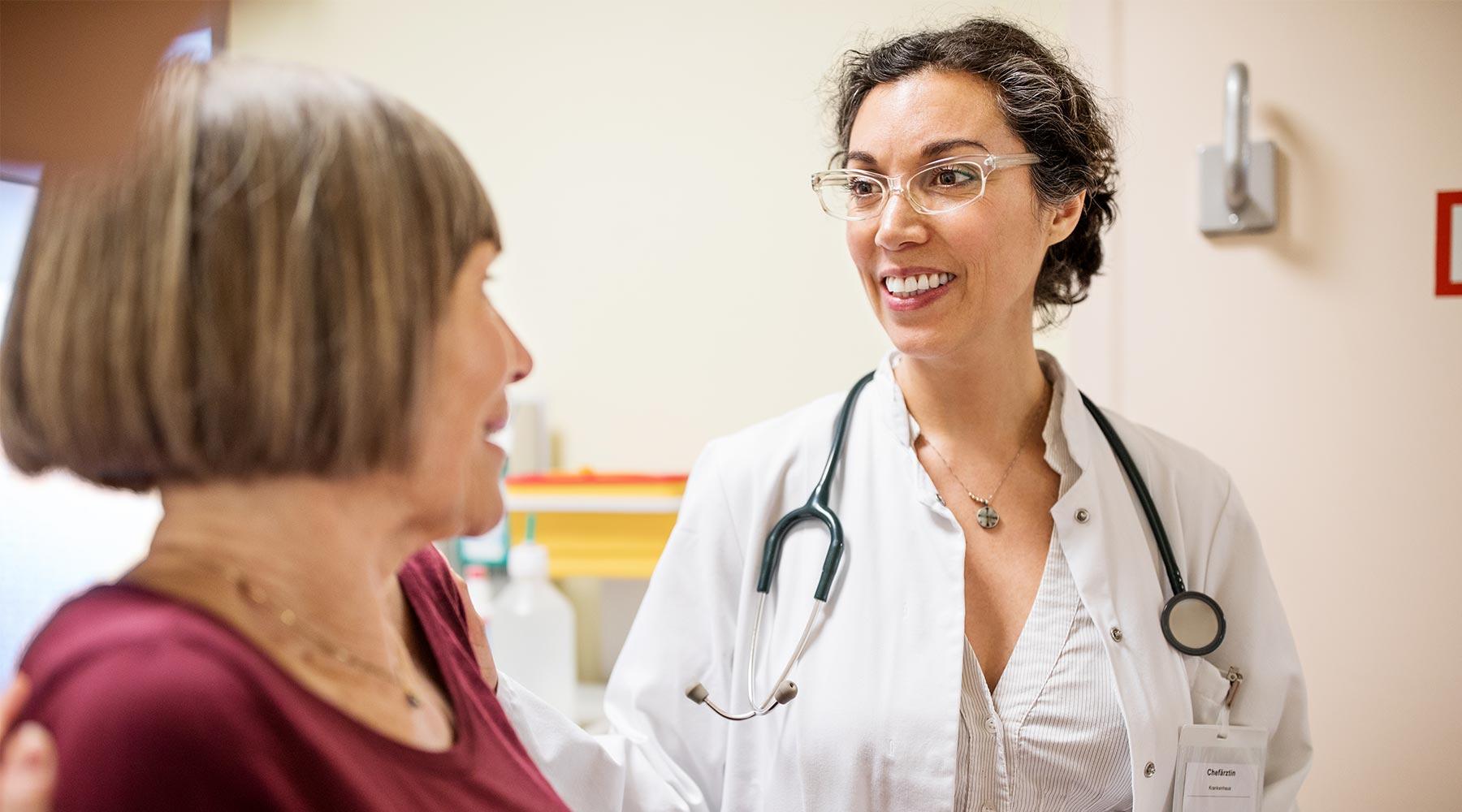
Chief Nursing Officer
$145,364
per year2

Ohio University's Bachelor of Science in Nursing to Doctor of Nursing Practice (BSN-DNP) program, which began in 2017, is intended to prepare students for advanced nursing roles with a focus on leadership, informatics, health policy and evidence-based practice.
This 70-credit BSN-DNP program allows students to customize their education with specializations in either direct patient care as an advanced practice nurse or indirect patient care as a nurse executive or nurse educator.
The master's degree program in nursing, Doctor of Nursing Practice program and post-graduate APRN certificate program at Ohio University is accredited by the Commission on Collegiate Nursing Education.

Ohio nursing students are considered preferred employees by many health care agencies when they graduate thanks to courses, expert faculty and hands-on learning experiences that prepare them to be agents of change at all levels of the nursing profession. With additional training in nursing education, DNP graduates have also chosen careers as nursing faculty. After graduation, you will be ready to meet the needs of individuals, families, and communities of the future.
Ohio University's BSN-DNP program offers two specialization paths: direct patient care as an advanced practice nurse (Family Nurse Practitioner, Psych-Mental Health Nurse Practitioner, Adult Gero-Acute Care Nurse Practitioner), and indirect patient care as a nurse executive or nurse educator. Upon graduation, students will have earned the DNP and a graduate certificate in their specialty focus, if applicable, for eligibility to complete a national certification examination.
70 Credits | Part-time curriculum | 1,000 clinical/practicum hours
Ohio University's BSN-DNP program is geared toward undergraduate-level students already working in the field. The flexible, online (with limited on-campus intensives) program include explorations of health policy, quality and safety in population health, and epidemiology for advanced nursing practice.
Course Highlights:
No GRE/ GMAT Required | Transfer Up to 9 Credits
Next Start - Fall 2026:
BSN-DNP program admission requirements include:
Students should be prepared to provide documentation of any national certifications, such as an APRN, Nurse Executive, etc.
Upon admission, students should be prepared to provide documentation of any precepted practicum/clinical hours earned through a graduate nursing program.
Prior to clinical/practicum experiences, students must also provide proof of the following:
Ohio University supports your commitment to academic excellence and connects you with various forms of financial aid — from federal loans to scholarships and military benefits. The tuition and fees for this program include:
| Tuition (BSN-DNP): | Ohio Resident: $43,260 Non-Resident: $44,800 |
|---|---|
| Cost Per Credit (BSN-DNP): | Ohio Resident: $618 Non-Resident: $640 |
| Additional Fees (BSN-DNP): | Anticipate additional fees for textbooks and Typhon access |
Listed tuition is for estimating purposes only and is subject to change.
OHIO is committed to offering affordable, competitive tuition and has been recognized for the fourth consecutive year as a best-value university by U.S. News and World Report. In addition, student veteran, active military members, alumni, and corporate partners are automatically eligible to receive a 15% scholarship. Depending on your background, costs and credit hours will differ.
While the BSN-DNP offers the flexibility of a part-time schedule and online learning, students also benefit from periodic On-Campus Intensives (OCIs) that broaden their network and expertise. OCIs take place at the Athens or Dublin campus
Students engage in interactive, interprofessional activities.
Connect with and learn from faculty, expert leaders, and in-the-field peers.
Ohio University has a long tradition of offering online programs specifically designed for the modality and created for working professionals. Our online students complete engaging, comprehensive coursework that combines the academic excellence and experience-based learning of a traditional program with all the flexibility and convenience of online study.
With asynchronous courses and part-time scheduling (one course per seven weeks), you can earn your degree while maintaining your current work and personal commitments. Virtual office hours give you the opportunity to connect with peers and faculty. Access your coursework 24/7 and complete your assignments on a schedule that fits your life.
Ohio University School of Nursing has established itself as one of the leading nursing schools in Ohio with multiple track options for the BSN-DNP student. When you join the program, you can expect to learn the skills required to pursue a career as a family nurse practitioner, adult gerontology acute-care nurse practitioner, nurse leader, and beyond.
As current practitioners in their fields, Ohio University's DNP faculty are experts dedicated to creating a collaborative, student-centered environment. As a student, you'll benefit from:
Complete your journey to advanced practice or nursing administration opportunities with flexible online coursework and enlightening practicum hours.
Ohio University's online Master of Science in Nursing (MSN) program is a comprehensive and focused program designed for active registered nurses with a BSN and a passion for career development. Whether you're interested in becoming a nurse educator, nurse leader, or nurse practitioner, the MSN program has a track for you.
Find answers to common questions about the online program. For information not covered here, our expert admissions team is available to provide additional details and guidance.
Tuition for the BSN-DNP program is $608 per credit for Ohio residents and $627 per credit for non-residents. You'll need to complete 70 credits for a total tuition of $42,560 for Ohio residents, or $43,890 for non-residents.
You can review all tuition costs here.
Tuition for the MSN-DNP program is $648 per credit for Ohio residents and $667 per credit for non-residents. You'll need to complete 36 credits for a total tuition of $23,328 for Ohio residents, or $24,012 for non-residents.
You can review all tuition costs here.
Yes, the BSN-DNP and MSN-DNP programs accept up to 9 transfer credits. It may be possible to transfer previous graduate credits to meet the requirements of our programs. There are limitations to the number, age, and types of credits that students may transfer to meet requirements. It is also possible to “waive” certain courses based on previous coursework; however, if a required course is waived, students may need to take an additional course to meet the required credit hours for graduation.
You can learn more about our admissions policy here.
Students are admitted into the DNP programs in the Fall and Spring terms. Please contact us for additional details.
Following Dates for Spring 2024:
The BSN-DNP and MSN-DNP programs offer two specializations: direct patient care as an advanced practice nurse, and indirect patient care as a nurse executive or nurse educator. Upon graduation, students will have earned the DNP and a graduate certificate in their specialty focus, if applicable, for eligibility to complete a national certification examination.
There are 1,000 clinical hours required to complete the BSN-DNP and MSN-DNP programs. These hours are integrated into coursework and project development, implementation, and evaluation:
Clinical practice hours are dependent on the course objectives. Clinical practice hours are faculty-supervised, in collaboration with a preceptor or mentor, and are individualized based on the program of study. Faculty work closely with students in the selection of a preceptor-mentor and clinical setting.
740.924.5725
to speak with a knowledgeable Student Engagement Specialist.